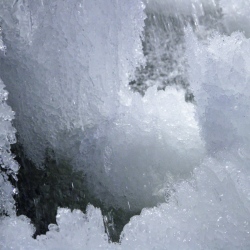
USC researchers have developed freeze-dried polio vaccine. It was freeze-dried into a powder, kept at room temperature for four weeks and then rehydrated, offered full protection against the polio virus when tested in mice. Polio is nearing complete eradication and had just 22 reported cases worldwide in 2017.
The highly infectious disease, which causes lifelong paralysis and disability mostly in young children, is a fading memory in many places. Yet in countries where vaccination rates are spotty, young children are at risk.
The biggest hitch to complete eradication has been creating a temperature-stable vaccine for use in developing countries where refrigeration may be unavailable. Recent polio cases have been reported in Nigeria, Papua New Guinea, Syria and Pakistan.
Benefit of Eliminating Polio
Successful and sustained eradication of polio carries significant humanitarian and economic benefits: with no child ever again suffering polio paralysis, and upwards of US$ 50 billion saved, those funds can be used to address other public health needs.
Failure to sustain eradication would have significant consequences, however, with global resurgence of the disease, and as many as 200 000 new cases every single year, all over the world, within a period of ten years. That is why full implementation of resolution WHA71.16 on containment of polioviruses is so important.
Other freeze-dried vaccines
In the United States, the polio epidemic reached its height in the 1950s. In 1957, mass immunization brought the annual number of cases down from 58,000 to 5,600. Since 1979, no cases of polio have originated in the United States.
By removing moisture through freeze-drying, researchers have created temperature-stable vaccines for measles, typhoid and meningococcal disease. But scientists haven’t been able to make a polio vaccine that retains potency through freeze-drying and rehydration.
Shin and his colleagues used two lab techniques — liquid chromatography and high-throughput screening — that allowed them to analyze a high volume of ingredients and formulations until they found one that worked.
Jung’s hope is that a foundation or company will take over the project to pay for human studies and bring the injectable vaccine onto the market.
This project was launched three years ago. Jae Jung and his college buddy Chang, CEO of Integrity Bio, decided to bring together Jung’s virology expertise with Chang’s expertise in stabilization. Chang paid Shin’s salary, and Jung provided supplies. They decided to start the project for humanitarian reasons while having dinner.
Integrity Bio is a contract development and manufacturing organization focused on the formulation and GMP filling of biologics. They have formulated over 150 biologics including vaccines, antibodies, proteins, and peptides for more than 75 firms. Integrity Bio specializes in hard-to-formulate products in liquid and lyophilized forms.
Storage and Handling of Temperature Sensitive Vaccines
Temperature sensitive vaccines need special refrigeration units and cannot have other items mixed in with the vaccines. Mixing in other items can cause temperature variations.
Universal Vaccination Could Save up to 1.5 Million Lives per Year
One in five children in the world are still not fully protected by even the most basic vaccines. About 22 million are at risk of contracting preventable diseases because they are under-vaccinated. This allows 1.5 million children to die every year from diseases that can be prevented by vaccination coverage.
Many rural areas in the world that do not have reliable power supplies. Vaccines need to be kept at particular temperatures, usually refrigerated, to remain effective. Cold chain conditions aren’t possible without power. A cold chain is a temperature-controlled supply chain that runs from the time the vaccine is produced until it’s administered. It holds the vaccines in a temperature of between 2°C and 8°C.
